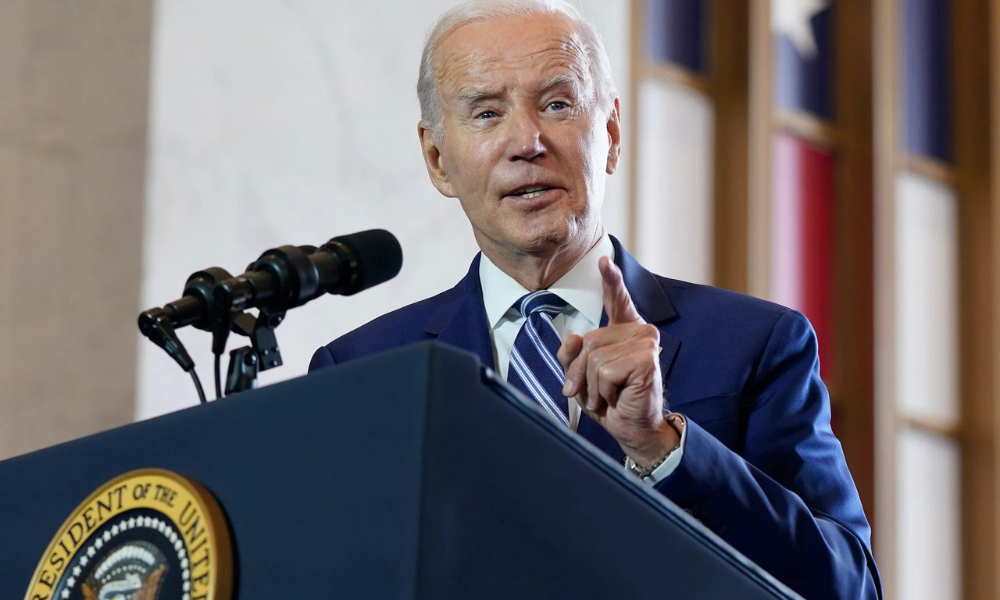
Joe Biden's Unique Foreign Policy Approach: A Deeper Look at His Approach Towards China, Russia, and the Middle East
- EconomyGalaxy
- 13 Sep, 2023
Joe Biden assumed office as the 46th President of the United States in January 2021, inheriting a world facing numerous geopolitical challenges.
As with any new administration, his approach to foreign policy has been closely scrutinized, especially in the context of major global players like China, Russia, and the Middle East.
In this blog post, we will explore how President Biden's foreign policy differs from his predecessors and examine his strategies and actions in dealing with these key regions.
China: A Strategic Rivalry with Diplomacy at the Forefront
One of the most significant departures from the previous administration is President Biden's approach to China.
While his predecessor, Donald Trump, adopted a confrontational stance, often using tariffs and sanctions as weapons in a trade war, Biden has chosen a more diplomatic path.
Here are some key differences in Biden's China policy:
- Multilateral Engagement: Biden has emphasized the importance of working with allies and partners in dealing with China. He has sought to rebuild alliances in the Indo-Pacific region to create a united front against Chinese influence.
- Human Rights and Democracy: The Biden administration has been vocal in addressing China's human rights abuses, particularly in Xinjiang and Hong Kong. While this approach is not entirely new, Biden has been more consistent in raising these concerns and has worked to coordinate efforts with other democracies.
- Climate Change Cooperation: Biden has pursued cooperation with China on climate change issues, exemplified by the U.S.-China joint statement on climate in April 2021. This demonstrates a willingness to find common ground even in areas of disagreement.
- Tech Competition: While continuing to be cautious about China's technological advancements, Biden's approach focuses on boosting American innovation and competitiveness rather than outright bans on Chinese tech companies.
Russia: A Firm Stance with an Emphasis on Diplomacy
Biden's approach to Russia, especially in the aftermath of alleged Russian interference in the 2016 and 2020 elections, has been marked by a mix of toughness and diplomacy.
Contrasting with Trump's approach, which was often seen as conciliatory, here's how Biden has differed:
- Ukraine and Crimea: Biden has maintained a strong commitment to Ukraine's sovereignty and has imposed sanctions on Russia for its annexation of Crimea. However, he has also sought dialogue with Russian President Vladimir Putin to manage tensions.
- Cybersecurity: The Biden administration has taken a tough stance on Russian cyberattacks and interference, holding Russia accountable through sanctions and diplomatic measures.
- Nuclear Arms Control: Biden extended the New START treaty with Russia, a move aimed at reducing the risk of nuclear conflict and demonstrating a willingness to engage in arms control diplomacy.
- Support for Allies: Biden has reaffirmed the United States' commitment to NATO and other European allies, signaling solidarity against Russian aggression.

The Middle East: A Shift Towards Diplomacy and Multilateralism
In the Middle East, President Biden has pursued a more diplomatic and multilateral approach compared to the more interventionist strategies of previous administrations. Key differences include:
- Ending Endless Wars: Biden has pledged to withdraw U.S. troops from Afghanistan, signaling a desire to end the "forever wars" in the region.
- Iran Nuclear Deal: The Biden administration has expressed willingness to rejoin the Iran Nuclear Deal (Joint Comprehensive Plan of Action or JCPOA) and engage in diplomacy with Iran.
- Saudi Arabia and Yemen: Biden has taken a tougher stance on Saudi Arabia's human rights record and has sought to end U.S. support for the Saudi-led military intervention in Yemen.
- Multilateral Approach: Biden has emphasized working with regional partners and international organizations to address Middle East issues, moving away from unilateral actions.
Conclusion
Joe Biden's approach to foreign policy, particularly in relation to China, Russia, and the Middle East, represents a departure from the strategies of his predecessors.
His emphasis on diplomacy, multilateralism, and a commitment to working with allies has defined his approach to international relations.
However, navigating complex global challenges requires adaptability and a willingness to reassess policies as circumstances evolve.
As the world continues to change, President Biden's approach will undoubtedly continue to evolve as well.
